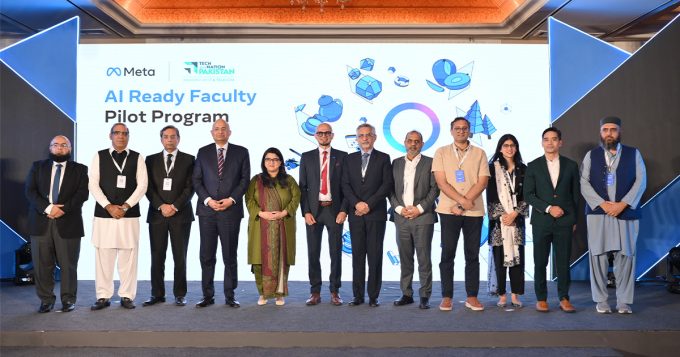It’s time to bring compassion into the workplace. Menstrual leave isn’t just about days off. It’s about supporting women’s well-being, breaking taboos, and creating a fairer, more inclusive environment for everyone.
Let us be real: working through a tough period day is not just hard—it’s practically a marathon. The cramps, the fatigue, and that all-too-familiar sense of discomfort make it challenging for anyone to stay focused, let alone give their best at work.
But here in Pakistan, these conversations are still whispered, if they happen at all. Isn’t it time we started addressing women’s health at work with the openness it deserves? This is where menstrual leave comes in—a straightforward, progressive policy that could make a world of difference for women trying to juggle their health and careers.
I recently surveyed 209 working-class women across Karachi, Lahore, and Islamabad, asking for their thoughts on a menstrual leave policy. To reach a diverse group, the survey was shared across various platforms, including WhatsApp groups, company email, and social media.
The responses were eye-opening. Most of these women felt that having the option to take a day or two off during their period would significantly improve their well-being. For them, it’s not about taking advantage of a policy; it’s about having the flexibility to manage their health without feeling like they’re falling behind at work.
Let’s be honest: when you’re dealing with period pain, a little understanding goes a long way.

Why does this policy make so much sense?
Menstruation comes with a whole range of symptoms such as cramps, nausea, and fatigue, and powering through all that at work is no small feat. A menstrual leave policy would give women the breathing room they need to care for themselves without having to tough it out all day.
When women can take a day to recharge and come back ready, they are more focused, productive, and engaged. This is a win-win for everyone involved; hence, this policy benefits not just the employees but also the company.
Employees love that the company prioritises their well-being, and it has made a noticeable impact on morale. Women feel more valued and engaged, knowing they have this support. Plus, this policy has opened conversations about health that were once considered taboo, helping to reduce the stigma around menstruation at work.
Of course, some argue that menstrual leave might hurt productivity. But if we look at the long term, it is quite the opposite. Companies that invest in wellness usually see lower turnover, fewer absences, and more engaged employees—benefits that far outweigh any perceived costs.
When women can take a day or two off when they are feeling their worst, they come back focused, rested, and ready to hit the ground running. In Pakistan’s competitive job market, the companies that truly prioritise employee wellness are the ones that will thrive.
And let us be clear, menstrual leave takes us closer to gender equality in the workplace. Women face unique health challenges, and it is high time employers recognised that. A policy like this tells women that their companies understand the realities they deal with and are committed to making the workplace fairer for everyone.
Shifting Cultural Norms: Challenging the Taboo Around Menstruation
On the other side is the cultural aspect. Menstruation is still a taboo topic in Pakistan, and that silence only harms women in the workplace. By implementing menstrual leave, companies are not just supporting their female employees but also challenging outdated norms that keep these conversations in the shadows.
Building an open, supportive environment will benefit everyone and break the silence that has held us back for far too long. Isn’t it time we moved forward, creating a healthier, more inclusive environment for all?
This is not a brand-new idea, either. Countries like Japan, Indonesia, and South Korea have had menstrual leave policies for years, and they have seen how supporting women’s health translates to a happier, more engaged workforce.
In Japan, for example, menstrual leave has been around since the 1940s, and companies have adapted without compromising productivity. Embracing a policy like this is not just about following trends but about building a workplace where people feel respected and valued.
Retaining Female Talent and Promoting Leadership
Women make up a significant part of the workforce, so why not create policies that fully support them? Retaining female talent is a challenge for many Pakistani companies. Especially when women feel they cannot balance their health and careers.
Menstrual leave could help keep skilled women in the workforce and provide them with the support they need to thrive, both personally and professionally. And yes, it is also a step towards having more women in leadership roles, something many industries are still striving for.
For companies focused on corporate social responsibility (CSR), menstrual leave presents a clear opportunity to demonstrate their commitment to gender equality and employee wellness.
Businesses that adopt policies like this are not just leaders in employee satisfaction; they also build positive brand reputations. Attracting top talent and elevating themselves as forward-thinking organisations. Menstrual leave is not about “extra days off”; it is a reflection of values that are critical to today’s workplace culture.
Here is the thing: a menstrual leave policy does not have to be complicated. Companies could offer one or two days off per month or even allow flexible work-from-home options on difficult days.
It is all about giving women the freedom to make the best choice for themselves. Without feeling that their work has to suffer. A small adjustment like this could make a huge difference to women’s health and happiness at work. Sending the message that their well-being genuinely matters.
The Bottom Line – Menstrual Leave is Long Overdue
To wrap it up, menstrual leave is more than just time off—it is a step towards a balanced, inclusive workplace. It is about acknowledging the real challenges women face and giving them the support they deserve.
As Pakistan’s workforce continues to grow and modernise. Policies like this will not only support women but also help foster a more compassionate and understanding work culture overall. Menstrual leave is not a luxury. It is a shift that is long overdue and necessary for building a workplace that truly works for everyone.










